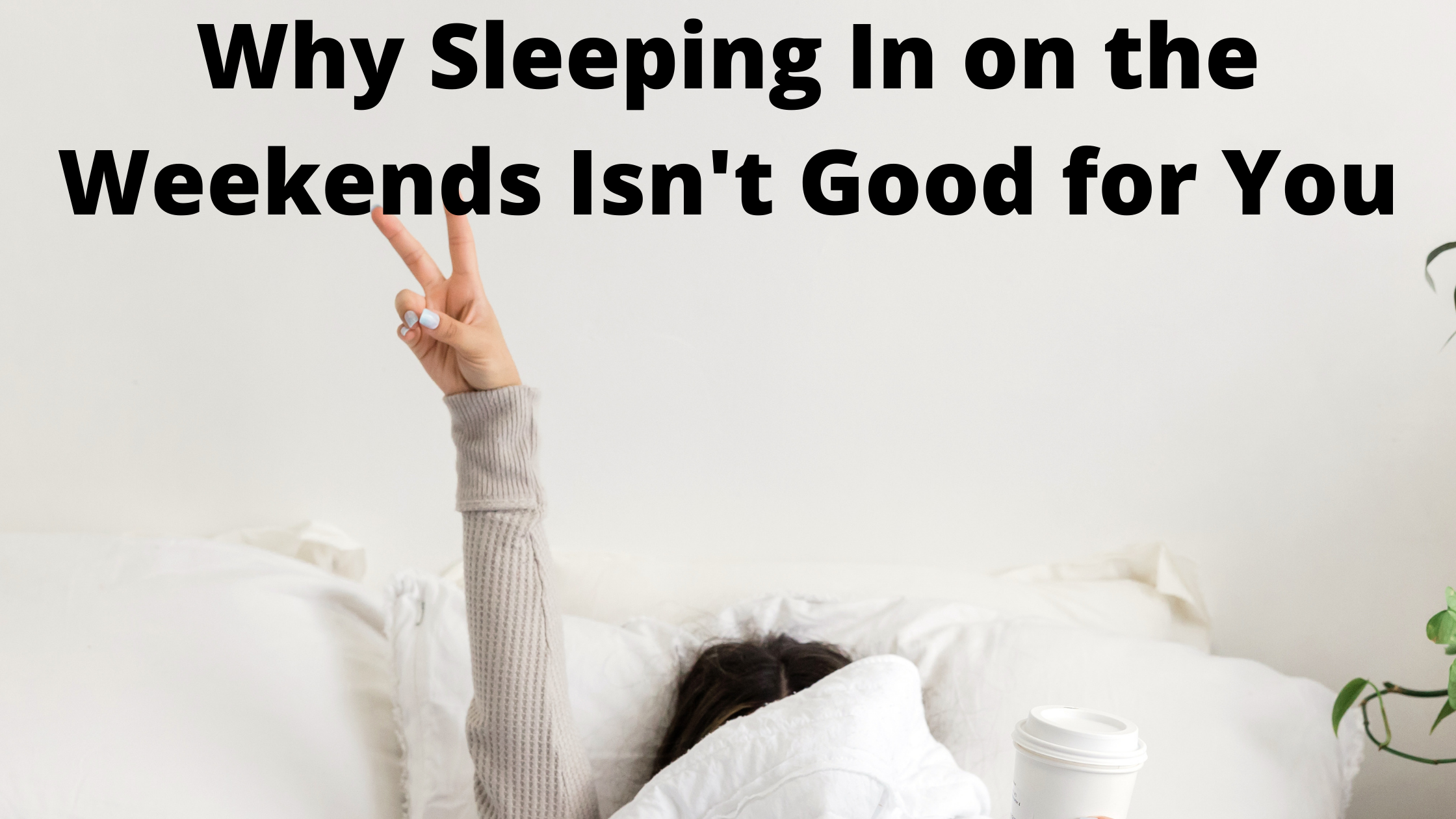
Nothing feels better than waking up on a Saturday morning to no alarm, at your own leisure. It's nice to just be able to go with the flow instead of being obligated to get somewhere at a certain time. However, sleeping in on the weekends may actually be detrimental to your sleep health. Continue reading to learn why keeping a consistent sleep schedule is best for your overall health.
Why you may want to sleep in on the weekends
When it comes to the weekend, you may be tempted to sleep in because you have built up a sleep debt. Sleep debt is when you get less than the recommended number of hours of sleep, anywhere from 7 to 9 hours a night for the average adult. Every time you get less than that, it's like building up a debt.
However, relieving that debt isn't as easy as a monetary debt. When you owe someone money, you can pay back a lump sum, and your debt is gone.
With sleeping, it doesn't work that way. The only way to resolve a sleep debt is to have multiple nights in a row where you are getting adequate, or even a little extra amount of sleep.
So, sleeping in on the weekend is not the same as paying off your sleep debt. In fact, you're probably just worsening your habits when you throw your schedule off.
How to make up a sleep debt
If you are extra tired, then it's important to find the cause of your sleep deprivation. Is it a long-standing problem or short-term?
If it's a short-term problem, like you're studying for a big test or trying to finish a big project, then a week of an extra hour of sleep for the following week should help alleviate some of the fatigue you may be feeling.
However, if you are always overly tired on the weekends and never feel like you get enough sleep, even after sleeping in, it may be time to figure out the long-term issue.
Are you not getting enough sleep because of stress? Maybe your bed is not comfortable, or your sleeping environment is not optimal for great sleep. You may have an underlying sleep disorder like sleep apnea that is keeping you awake without your awareness.
If you are unsure, then you can ask someone who sleeps with you or talk with your doctor to sign up for a polysomnography (sleep study).
You must find out what the underlying cause is because sleep deprivation can be very dangerous. It is the equivalent of drunk driving, can increase obesity and insulin resistance, putting you at risk for diabetes mellitus, can decrease your focus and concentration, and can cause mood instability.
How to maintain a healthy sleeping pattern
It's important to find out how to maintain a healthy sleeping pattern every day, not just on the weekends. Two days of sleeping in is not enough to make up for five days of getting too little sleep.
To truly correct this problem for yourself, there are a variety of things you can do to try to improve your sleep during the week.
The first thing is to go to sleep and wake up every day at the same time - and yes, this includes the weekend. Even though you have nowhere to be at six am on Saturday, by continuing to wake up at the same time, you will still be ready to go to bed early at night, and get up when the week starts again.
The next thing you can do is ensure that your sleeping environment is optimal for great sleep. This means that your room is cool, below 70 degrees, dark, and quiet. Any light - like from phones, computers, or TVs - can cause issues staying asleep as the blue light can interrupt the flow of melatonin from your brain, which is key in helping you stay asleep.
Finally, make sure that your routine before bed is optimal for sleep. If you eat too late or work out too late, then you can increase the activity of certain bodily functions that are supposed to be calm before bed (i.e. digestive system).
The best things to do before bed are reading, meditating, spending time with family, and other activities that reduce your exposure to blue light while also calming down your brain enough for adequate sleeping.
If you are continuing to have trouble sleeping even after making these adjustments, then please click the orange button below to take a free online sleep test and get in contact with one of our sleep health professionals who can help you identify places of improvement or underlying sleep disorders.
https://nypost.com/2022/02/05/im-a-sleep-expert-heres-why-you-should-never-sleep-in-on-the-weekend/

